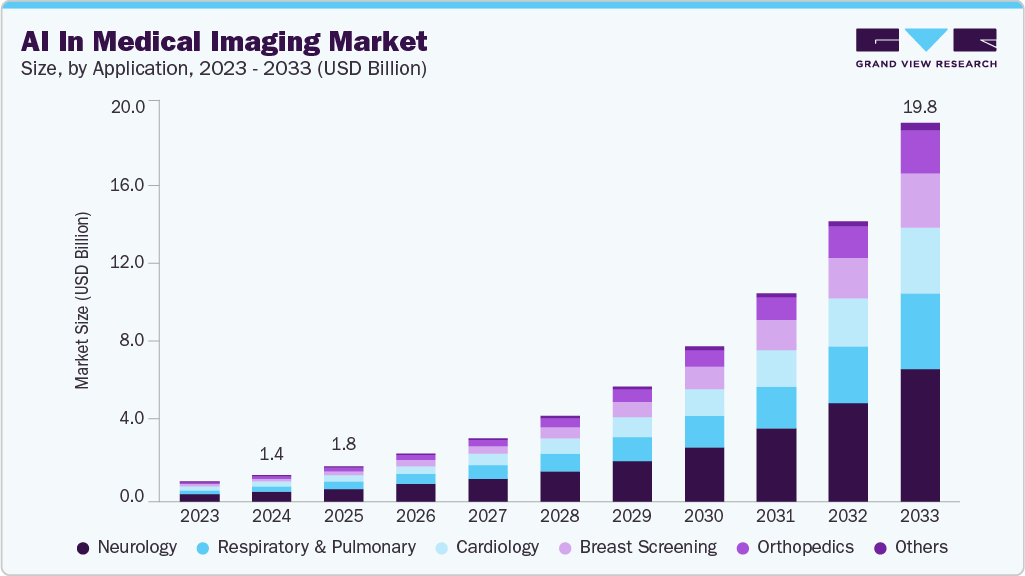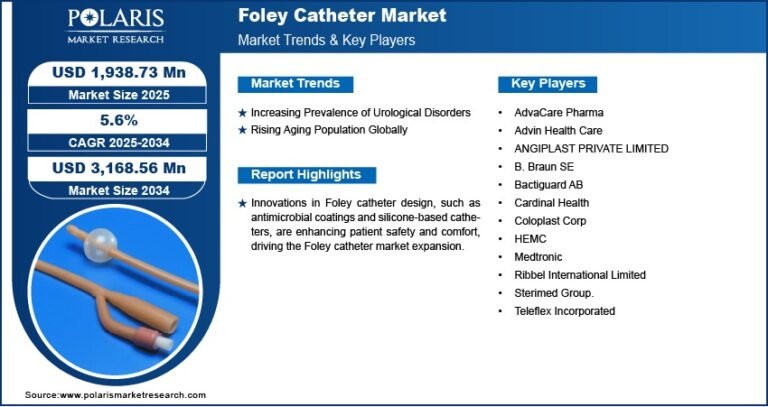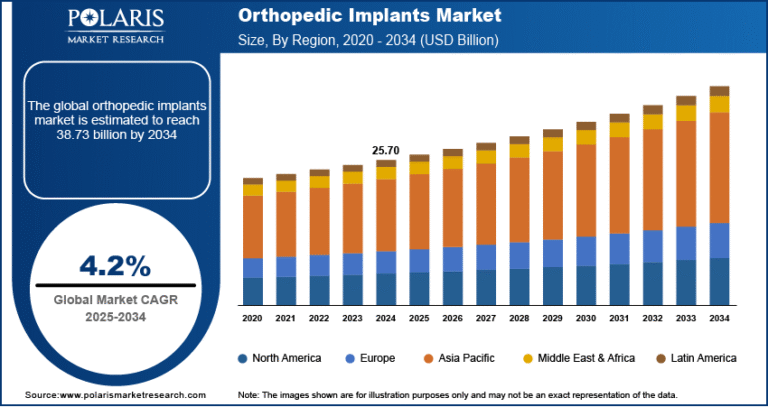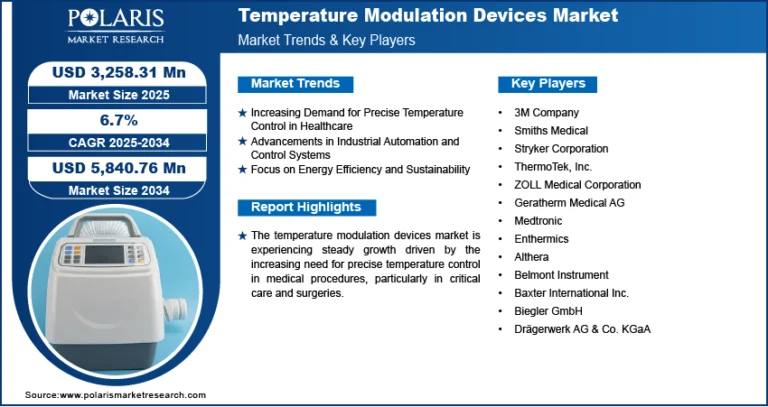AI In Medical Imaging Market Size, Share & Trends Analysis growing at a CAGR of 34.67% from 2025 to 2033

The global AI in medical imaging market size was estimated at USD 1.36 billion in 2024 and is projected to reach USD 19.78 billion by 2033, growing at a CAGR of 34.67% from 2025 to 2033. Rising demand for early & accurate diagnosis, increasing volume of imaging data, and technological advancements in artificial intelligence (AI) and machine learning (ML) contribute to market growth.
Key Market Trends & Insights
- North America AI in medical imaging market held the largest share of 43.04% of the global market in 2024.
- The AI in medical imaging industry in the U.S. is expected to grow significantly over the forecast period.
- Based on technology, the deep learning segment held the highest market share of 57.67% in 2024.
- Based on application, the neurology segment held the highest market share in 2024.
- By modalities, the CT scan segment held the highest market share in 2024.
- By end use, the hospitals segment held the highest market share in 2024.
Market Size & Forecast
- 2024 Market Size: USD 1.36 Billion
- 2033 Projected Market Size: USD 19.78 Billion
- CAGR (2025-2033): 34.67%
- North America: Largest market in 2024
- Asia Pacific: Fastest growing market
Request a free sample copy or view report summary: https://www.grandviewresearch.com/industry-analysis/artificial-intelligence-medical-imaging-market/request/rs1
In addition, shortage of skilled radiologists, growing adoption in telemedicine & remote diagnostics, and integration with PACS and cloud infrastructure fuel market growth further. The increasing demand for handling large medical datasets has accelerated the use of AI in medical imaging, owing to its ability to improve diagnostic precision, expedite image analysis, and enhance healthcare efficiency through advanced data management and interpretation. For instance, In November 2023, Koninklijke Philips N.V. expanded its enterprise imaging and introduced its HealthSuite Imaging AI solutions at RSNA23 on Amazon Web Services for faster adoption of new capabilities, improved operational efficiency, and enhanced patient care through secure cloud-based PACS, enabling high-speed remote access and AI-driven workflow orchestration.
AI-driven medical imaging tools use advanced algorithms and computing to provide rapid decision support to healthcare providers. Advancements in deep learning, convolutional neural networks, and generative adversarial networks have significantly improved the accuracy and effectiveness of medical image analysis. A Microsoft-IDC study published in March 2024, shows that 79% of healthcare organizations currently use AI technology, with a return on investment of USD 3.20 for every USD 1 invested. This is due to the increasing demand for accurate diagnoses and the complexity of medical imaging data.





